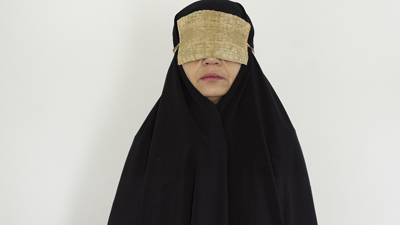By: debbie lynn elias

Leading the charge in the Documentary Competition at Los Angeles Film Festival 2013 and a film which goes beyond even being a “Must See” is MY STOLEN REVOLUTION. There’s simply no excuse to not see it. The #1 “Must See” documentary choice of myself and LAFF programmers Maggie Mackay and Doug Jones, MY STOLEN REVOLUTION is a very personal and intense story as acclaimed documentary filmmaker Nahid Persson Sarvestani bares her soul, taking us on her journey from her days as a student activist in 1979 fleeing Teheran and the guilt she has lived with for over 30 years to a form of cathartic redemption today. In her youth, the activism of Sarvestani, her brother and a group of very dear friends were getting a lot of attention from the police. One night she was told by her brother, “They’re coming for you. You have to leave. Get out.” She did. She never saw her brother again and never saw any of her friends again. The group of women went to prison that night. Her brother went to prison and never made it out alive.
When renewed protests in the country took center stage several years ago, Sarvestani was moved to confront her own demons and seek out those she left behind, including some other fellow female activists and her beloved brother whom she never saw again after leaving.
Framed in the context of piecing together information on her brother’s final days during his 6-month imprisonment and ultimate execution by the Islamic Republic, Sarvestani reconnects with five other women who were not as fortunate as she, and who were unable to flee the country. Initially going to each of their homes individually in order to peersonally reconnect with each, Sarvestani eventually brings all the women to her home in Sweden where they spend a weekend telling their individual stories. Through their stories she finds a bit of salvation for herself and also pieces together the last days of her brother’s life. Interviews with each are powerful and chilling as they relate the horrors of life in the Republic, horrors which included both physical and mental torture. The strength and conviction we see in each woman is inspiring, humbling and empowering.
With narration by Sarvestani, interviews are interspersed with historical photos and footage of the violence and political turmoil in the region over the years as well as personal photos. Narrative line is clear and cogent, allowing the audience to immerse themselves in the journey of not only Sarvestani, but the women with whom she speaks. Sarvestani’s courage and bravery in telling this story will move you in unfathomable ways, the emotions for which defy words.
Written and Directed by Nahid Persson Sarvestani












